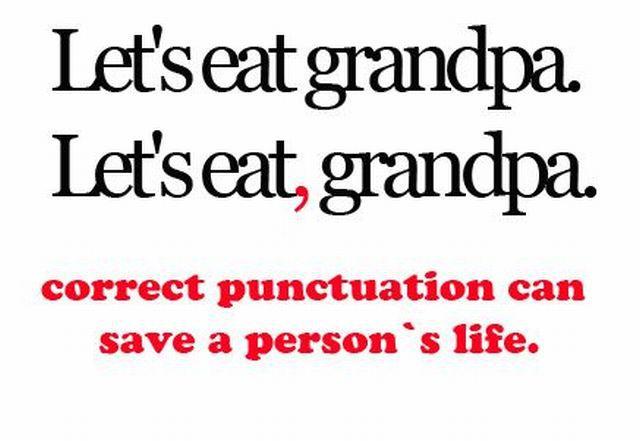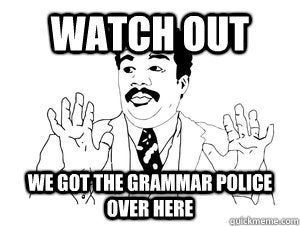The Oxford comma, also known as the serial comma, is one of those writing conventions in English that people either love or hate. If you were one of the lucky few in high school to have an English teacher who was particularly passionate about the subject, then you probably know what I’m talking about. The most important thing to know about the Oxford comma is that it isn’t a clear cut grammar rule. In other words, it is what one could call “optional punctuation”.
This punctuation is indeed named after the Oxford University, as the name suggests, due to their style guidelines. It is “the comma before the conjunction at the end of a list” (Okrent).
One of my favorite example to use to highlight the importance of the Oxford comma is as follows:
“Harry talked to the strippers, Snape and Voldemort.”
Without a comma before the “and” in the sentence, readers are led to believe that the strippers that Harry is talking to, are Snape and Voldemort. This is due to the comma in this sentence serving the function of supplementing information about strippers, namely who they are. Adding the Oxford comma on the other hand would look like this:
“Harry talked to the strippers, Snape, and Voldemort.”
For the second example, there is now a clear distinction being made and the reader can interpret that they are three different entities.

As you can see, the use of the Oxford comma can impact the clarity of the writing. In short, it’s a tidbit of English information. It’s something neat to throw into the mix and possibly even impress some peers with. Expression, after all, is the vehicle of English. If this breaks down, then the writing is not able to connect with people the way it should. This is why grammar and spelling rules exist. To create one coherent system that makes it easier for the masses to understand.
Due to the discrepancies of its usage, the use of the Oxford comma has been heavily debated, with each side bitterly arguing that they are representing the English language better. The con side believes that one should use the punctuation only when absolutely necessary as it clutters and slows down readers (Okrent). The pro side on the other side prefers the clarity it provides and that it generally doesn’t hurt to spend the extra second to add the comma (Okrent). The usage of the comma also varies from country to country, based on their preferred style of writing. For example, the United States prefer using the Oxford comma, whereas the United Kingdom is rather against it.
Personally, in the debate of whether to use Oxford commas or not, I like to err on the side of clarity, instead of seeing it as a nuisance or an overcomplication of an already annoying grammar system. Perhaps that might be true for some people, but I’ll be the first person to say “I told you so”, when people who read your work get Voldemort and the strippers confused. Where do you sit on this subject? Is it a central part of English or a trivial addition?

By no means do I think I’ve managed to convert, you the readers, to loving the Oxford comma like I do, but hopefully I provided you with something interesting to think about. In the end, you are the creator of what you’re writing, so it’s up to you.
Cheers,
Sabrina
Works Cited
Okrent, Arika. “The Best Shots Fired in the Oxford Comma Wars.” Mental Floss. Mental Floss, January 22, 2013. http://mentalfloss.com/article/33637/best-shots-fired-oxford-comma-wars. Accessed January 11, 2017.